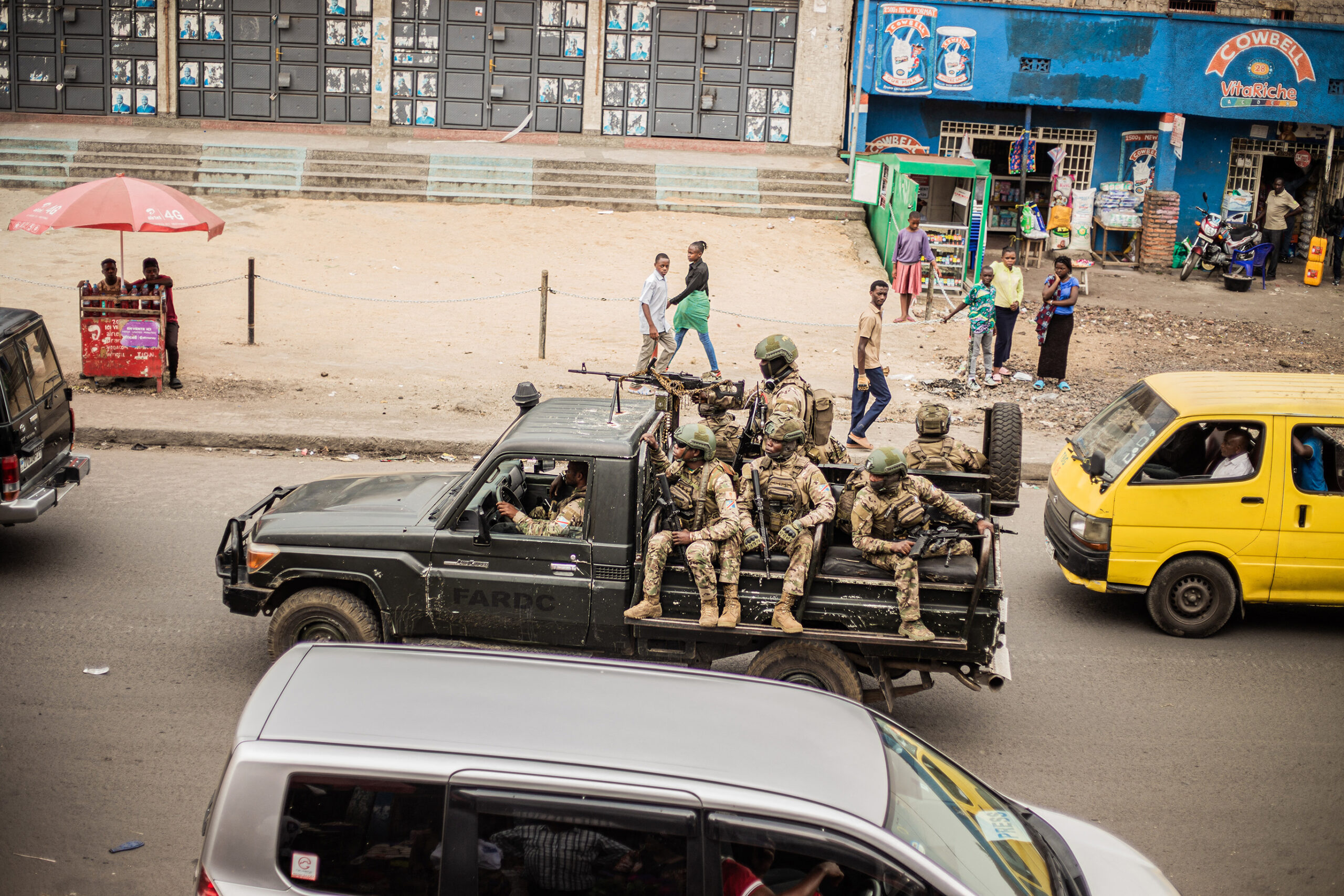The Great Lakes
Burundi, Democratic Republic of Congo, Rwanda, and Uganda
Last updated: 6 May 2025
Last updated: 6 May 2025
A soldier of the Armed Forces of the Democratic Republic of the Congo stands at a frontline military position above the M23-controlled town of Kibirizi in the eastern DRC’s North Kivu province on 14 May 2024. Photo by ALEXIS HUGUET/AFP via Getty Images
Recurrent, inter-connected conflict in Africa’s Great Lakes region spanning Burundi, Rwanda, Uganda, and the eastern Democratic Republic of Congo (DRC) has been driven by a number of factors, including competition over power, land, and natural resources. While violence is concentrated in the eastern provinces of the DRC, neighboring conflicts have impacted regional peace and security. The joint Congolese and Ugandan military force under Operation Shujaa in Ituri and North Kivu provinces has yet to bring an end to violence carried out by Allied Democratic Forces (ADF), especially against civilians. Meanwhile, Burundian forces are fighting against the March 23 Movement (M23) and Rwandan military forces (RDF) in the DRC and further operations against Burundian rebel groups that operate from South Kivu province.
The DRC tends to rank high on ACLED’s Conflict Index over both local and regional tensions, with more turbulent and localized political violence driving the conflict in Burundi and Uganda. While Rwanda has been long considered stable, the offensive into the DRC led Congolese forces to launch retaliatory artillery strikes into Rwanda and may destabilize western areas of the country.
The persistent conflict in the Great Lakes region has been driven by military forces, foreign-backed armed groups, rebel movements, and local militias. Since the re-emergence of the M23 in 2021, it has become the most violent group in the Great Lakes region. The M23 receives support from the RDF, or Rwanda Defence Force, whose soldiers often fight alongside the M23 and provide the rebels with advanced weapons. The ADF, an armed group operating in the eastern DRC and Uganda with reported ties to the Islamic State, has consistently carried out the most violence toward civilians in the Great Lakes. The ADF also remains a threat to Uganda, with a long history of cross-border violence. When confronting various threats, Congolese military forces (FARDC) have received support from numerous armed groups, bilateral military forces, and multilateral troops. Notably, the FARDC has drawn upon the Wazalendo coalition, a loose association of militias aligned with the Congolese military that initially emerged as localized youth self-defense groups.

Q&A | 29 January 2025
After more than three years of renewed operations in eastern Democratic Republic of Congo, the March 23 Movement (M23) and Rwandan Defence Force (RDF) soldiers laid siege to Goma city on 26 January 2025. Q&A with ACLED’s Africa Senior Analyst Ladd Serwat.
CONFLICT WATCHLIST 2025 | 12 December 2024
Read more
For media queries and interview requests, reach out to one of our experts, or fill in our contact form.
We are pleased to announce that a new-and-improved version of our website will be launching soon. It is built to offer a faster, more intuitive, user-friendly way for you to access our data, analysis, and visualization platforms. More details coming soon…